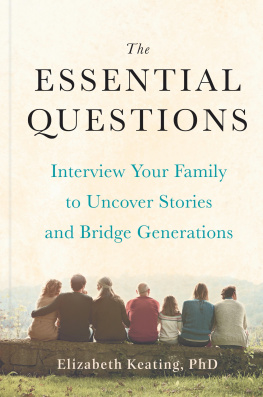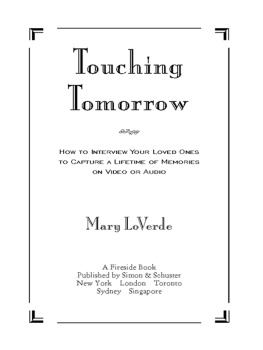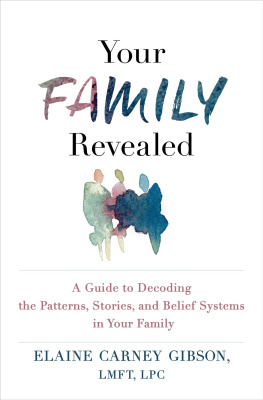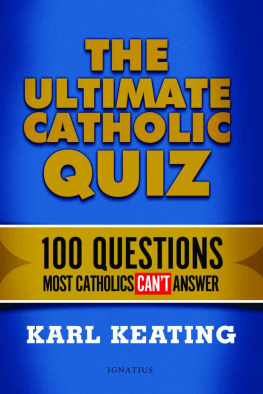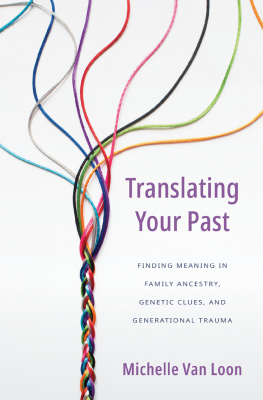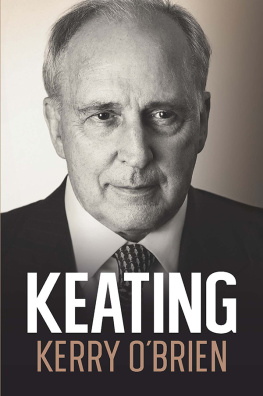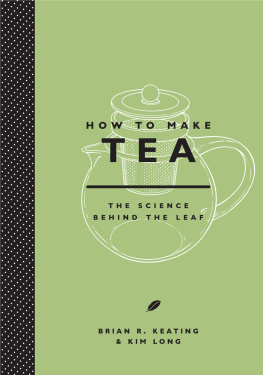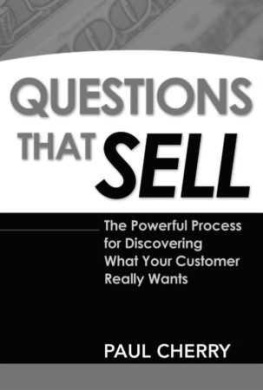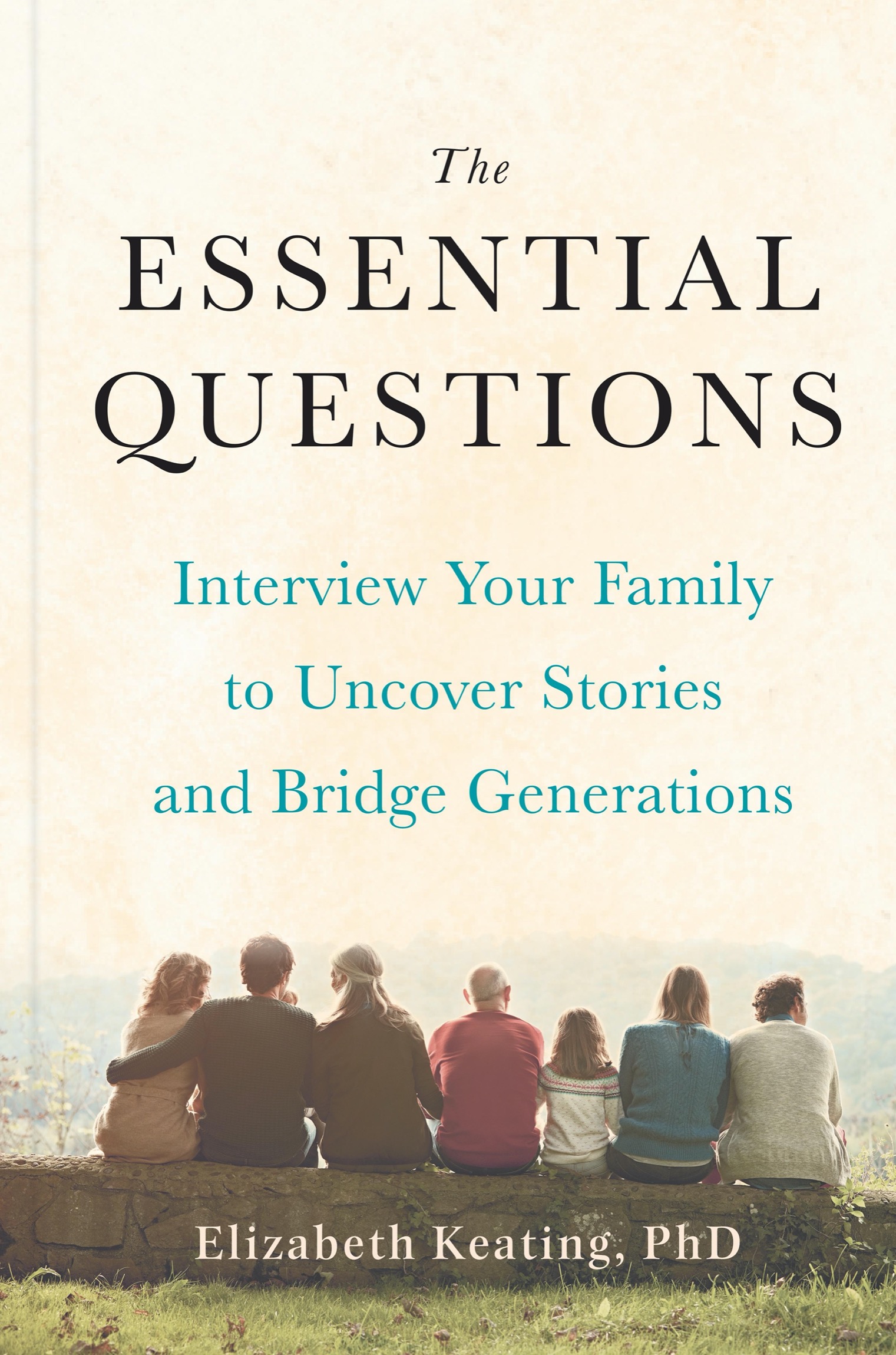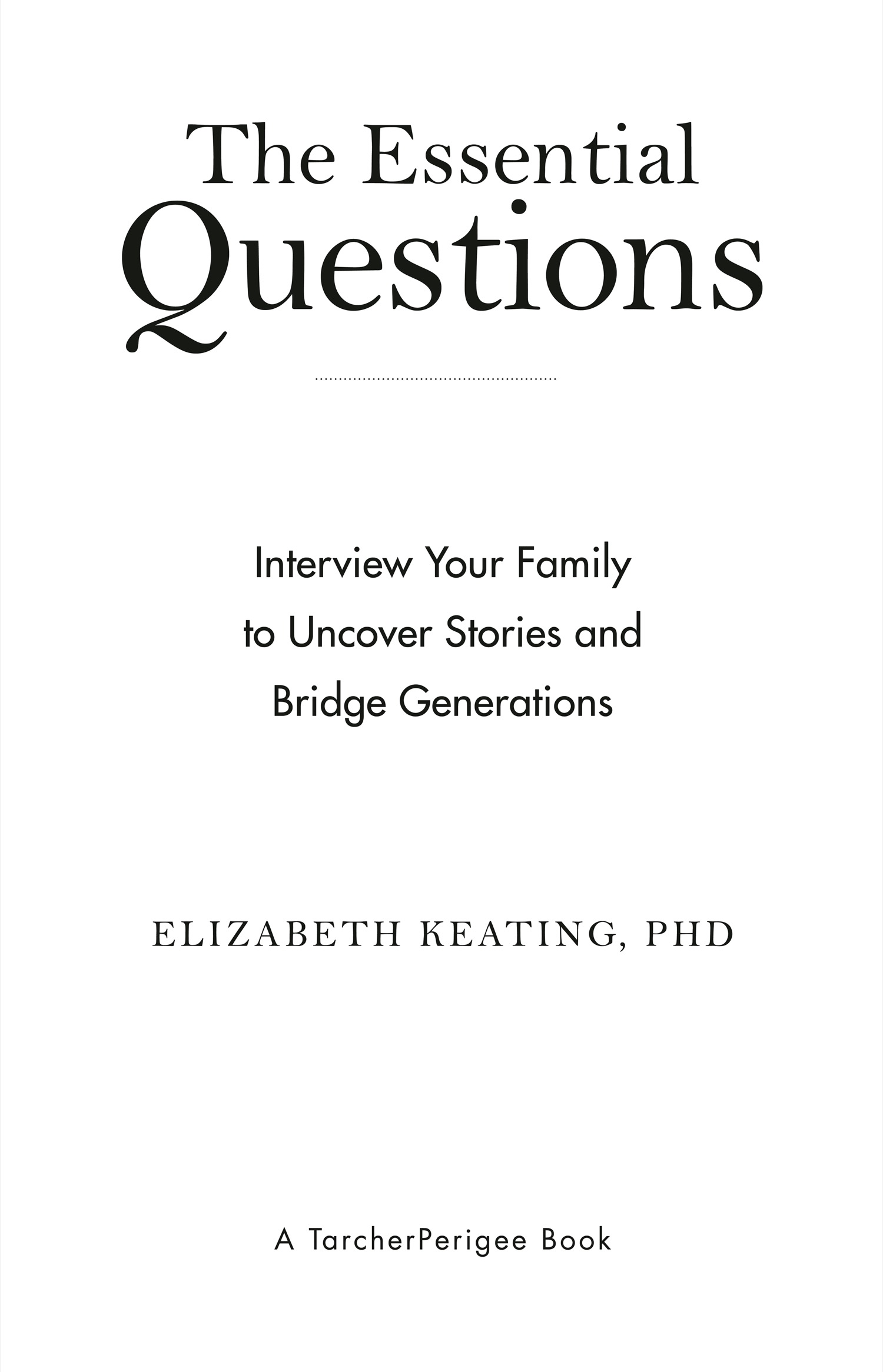Praise for The Essential Questions
The Essential Questions does an amazing thing. It takes something that most of us may regret somedaynot knowing the narratives that shaped our closest relativesand develops a beautifully written and elegant solution to it. Elizabeth Keating brings an anthropologists eye and a humanists heart to helping people collect and understand their own family stories. Dont just read this book; follow its instructions.
Art Markman, professor of psychology at the University of Texas at Austin and author of Smart Thinking
If youve ever heard anyone say, I wish Id asked my mom about that, then this is the book for you. In The Essential Questions, Elizabeth Keating reveals how, with empathy and curiosity, you can interview your family members to uncover previously hidden stories about the times and places that made them who they are, and strengthen your bond with them in the process. A gift to families everywhere!
Sarah Bird, author of Daughter of a Daughter of a Queen
Some books feel profoundly necessary, though you cant pinpoint why.... This book is one of those. It goes beyond just family trees and helps you capture your elders experiences before they slip away. This book is a love letter to anthropology itself, full of details about ways of life in other times and places. Down-to-earth and easy to use, its a wonderful guide.
Michael Erard, author of Babel No More
With an innovative angle and compelling storytelling, The Essential Questions is an accessible and super-useful guide offering a multifaceted, poignant inquiry into our life stories, memory, identity, family, and intergenerational connections. It has been a long time since I read a book that felt as urgent, timely, necessary, and utterly relatable throughout. A page-turner!
Alexandra Georgakopoulou-Nunes, professor of discourse analysis and sociolinguistics at Kings College London
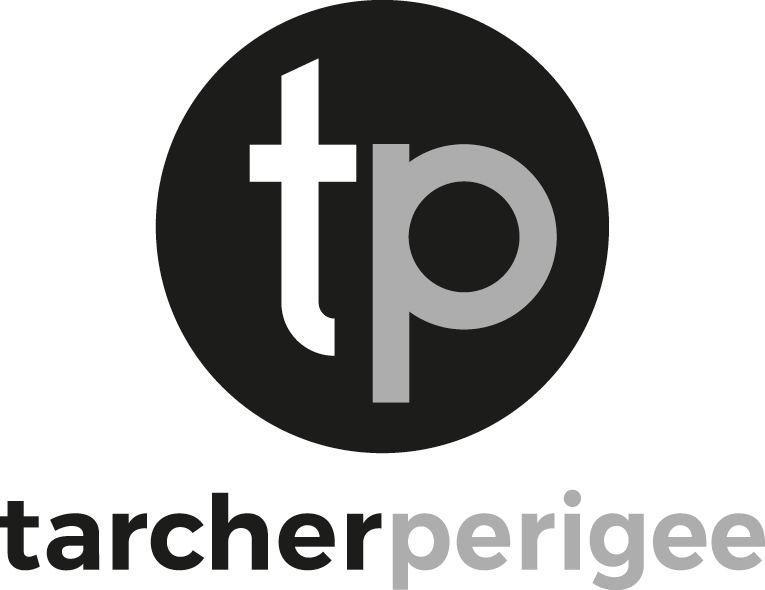
An imprint of Penguin Random House LLC
penguinrandomhouse.com
Copyright 2022 by Elizabeth Keating
Penguin Random House supports copyright. Copyright fuels creativity, encourages diverse voices, promotes free speech, and creates a vibrant culture. Thank you for buying an authorized edition of this book and for complying with copyright laws by not reproducing, scanning, or distributing any part of it in any form without permission. You are supporting writers and allowing Penguin Random House to continue to publish books for every reader.
TarcherPerigee with tp colophon is a registered trademark of Penguin Random House LLC.
ISBN 9780593420928
eBook ISBN 9780593420935
Cover design: Jess Morphew
Cover image: (family) Morsa Images / DigitalVision / Getty Images
Book design by Lorie Pagnozzi, adapted for ebook by Kelly Brennan
Some names and identifying details have been changed to protect the privacy of individuals.
pid_prh_6.0_141766248_c0_r0
To my students at the University of Texas at Austin
and
To the people who generously spent time answering my questions about their lives
and
To families everywhere who want to find deeper connections
CONTENTS
CHAPTER 1
Introduction: The Anthropology of Family
You might think you already know your familys stories pretty wellbetween childhood memories and reunions and holiday gatherings, you may have spent countless hours with your parents, grandparents, aunts, and uncles, soaking up family anecdotes and lore. As a professor of anthropology, I have always been fascinated by the stories that families tell, and a few years ago, I started researching family stories that are passed down from generation to generation. I have been astonished to find that many people actually know little of the lives of their parents and grandparents, even though they lived through some pretty interesting decades. Even when I asked my students, some of whom majored in history and excelled at it, about the history of their own families, they were in the dark. Our elders may share some familiar anecdotes over and over again, but still, many of us have no broader sense of the world they lived in, especially what it was like before we came along. What kind of world did our grandparents and parents inhabit as children and young adults? And how can we get them to open up about it?
It wasnt until my mother died in 2014 that I realized how much I didnt know about her life. This was all the more poignant because I had recorded several interviews with her when she was seventy-nine. Back then, I was curious about aunts, uncles, and cousins, people she knew and I didnt, and about the knowledge of our family she had gathered over a lifetime that I worried would be lost. And I wanted a record of her voice (I knew I would miss her husky, glamorous voice). At the time, I thought that if she just started talking for the tape recorder, everything I was curious about would spill out in one coherent narrative. Yet that idea turned out to be a fantasy. Rather than bringing us closer together, the experience underscored how differently our respective generations looked at the world. So, in spite of my efforts to dutifully record what my mother knew about various family members, I never asked the questions that haunt me now. Questions about her. Only after she died and her aura of mother receded did I wonder, did I really know her? Before she died, Ilike many children, I suspectavoided any potential clashes, wanting to preserve harmony rather than ask sensitive questions. Now I wish I had asked what formed her different generational beliefs. Im curious about what it was like to live in her time, in the places she did, what interactions she had. I wish I had a fuller sense of her as a person, especially how she was when she was young with a lust for life. How would I have structured such a conversation? What questions should I have asked?
Ive since heard other people express, with an emotion I recognize, that there are things they wished theyd asked their late parents and grandparents. Like me, they wanted to know more about their elders as people. Why did their grandmother leave home to work as a housemaid so far away at a time when this was extraordinary? Why did their parents buy that house with the big garden they never seemed that interested in?
I started to research how knowledge isnt passed down in families and why family members dont know more about one another. I realized there were three flaws in my failed interviews with my mother (never mind that I hadnt even thought to interview my grandparents). First, I formulated my questions based on information I already knew, meaning that my questions were based on fragments my mother had previously shared with me. As a result, she didnt tell me things I had no clue about. Second, I asked her about people in the family, when now I wish Id asked about my mother herself, and her relationship to the world. And third, I was trapped in our mother-daughter dynamic, with all my impatience and discomfort with oppositional generational attitudes, for example, concerning how women should dress and what my behavior signified to others. I didnt ask my mother the kinds of questions that would have enabled me to step out of my own frame of reference and to take her perspective in order to better understand how she came to see things the way she did, and something of the experiences that made her who she was. In other words, I couldnt leverage the difference between us into something that gave me a new understanding of the times, places, and people that shaped her and my family history. I didnt have a way to see her in any role other than mother. I missed out on learning what my mother saw through her eyes as a young person, before five children dominated her time and aspirations.

